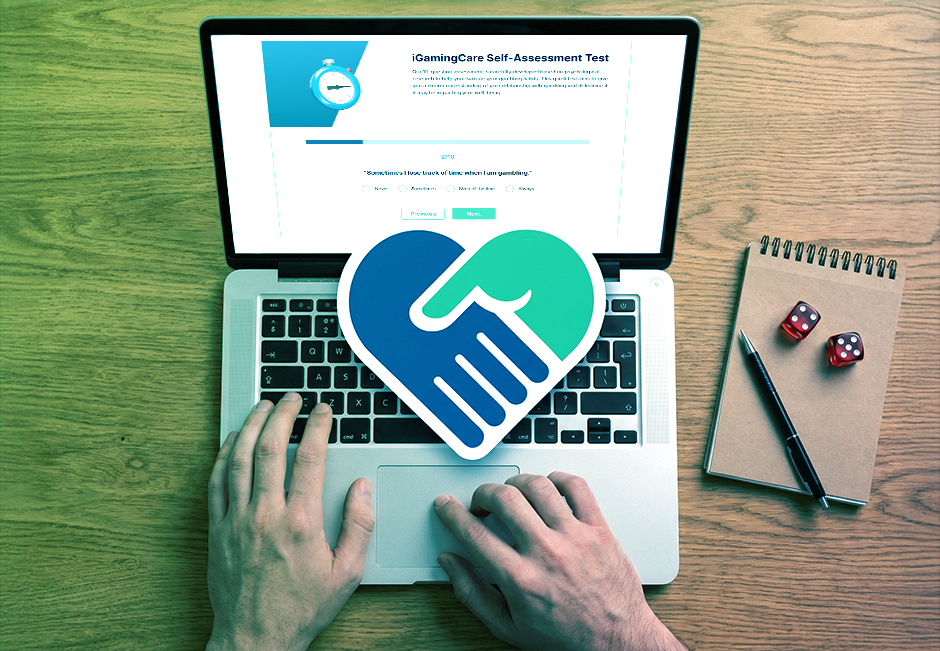
How AI Can Help Prevent Problem Gambling

With the increase of online gambling and stricter regulations, promoting responsible gambling is even more critical for legitimate operators. To ensure the efficiency of their programs and proper implementation of their tools, online casinos have started using AI.
To help you understand these developments, we have prepared this article on recent AI developments and their uses for responsible gambling. You can learn the exact ways it can help and how it can identify problem gambling.
Importance of Responsible Gambling Regulations
Gambling has become more prominent thanks to online casinos and sportsbooks, prompting countries to introduce stricter laws. For example, the Netherlands requires operators to contact customers within an hour of noticing risk factors, while the US is considering a new SAFE act, which involves a national self-exclusion list.
“In what could be perceived as somewhat extreme, from an American perspective, in the Netherlands, they just put new enhanced checks in place where if you detect something wrong with particular risk factors or harm with a player, you as an operator have to reach out to the customer within an hour.”
Rasmus Kjaergaard Mindway CEO
Many European countries, like Spain or the UK, also require operators to identify and report the number of problem gamblers regularly. However, as noted by a study on AI predicting self-reported problem gambling by Michael Auer and Mark D. Griffiths, that can be challenging. Players self-exclude for a variety of reasons, and not everyone is at high risk of developing addiction.
Many operators are turning to AI to ensure the programs can work smoothly and provide a better service. It can be used to interact with players through live chat or analyze behavioral patterns to identify players at risk of developing an addiction. Overall, AI can significantly improve the effectiveness of responsible gambling tools.
Automated Personalized Messages Work
One potential use for AI in responsible gambling is personalized messaging. It can identify if you’ve spent more time playing than usual and suggest breaks. These messages are great for players, as they identify specific issues and provide effective solutions. Another study by Michael Auer found that such messages significantly influenced players to minimize playing the same day they read them.
| Risk of Problem Gambling | Amount of Players Reducing Betting |
|---|---|
| No Risk | 66% |
| Medium Risk | 65% |
| Low Risk | 63% |
| High Risk | 57% |
The study found that more than half of the high-risk players were influenced to limit their gambling habits, which is a great result indicating this feature’s effectiveness. While some players might need time, these messages can still be effective, as seven days later, 54% of high-risk players reduced their gambling.
Aside from personal messages, AI can also send players information on how to use responsible gambling tools. You can rely on a quick response and get recommendations for specific guidance related to your problems. Operators will also be able to receive feedback on the effectiveness of their programs and can have a better idea of how to improve.
Data Gathering
Another essential function of AI in responsible gambling is locating markers of harm. These include chasing losses, frequent deposits, or an increase in the deposit amount. AI can identify players at risk of developing an addiction and help them with timely solutions and resources.
One application for this is in live chat. A study by Haefeli et al. found that AI can be used to identify players who might self-exclude in the future through their communications with customer service. An agent using this AI tool can respond even more efficiently.
“Whether it’s just light-level, light-touch mental health-related issues, or if it’s all the way up in the addiction category, they’re more likely to engage with the service because you’re communicating with them more frequently based off of how they’re sliding around on the risk scale.”
Daniel Umfleet Kindbridge CEO
By identifying risk factors, AI can help you even at low risk of addiction. A recent partnership between Kindbridge Behavioural Health and Mindway AI led to a program allowing the clinic to get in touch with low-risk players. By establishing communication from the start, operators can foster trust and adjust if the risk of addiction increases.
Proper Implementation
To ensure players can receive the best experience, operators must be careful when implementing AI. Many tools still require human input, and any complex issues require an agent to assess them and determine how to proceed. Recent studies have found that AI positively affects customer support effectiveness, although it is most helpful with low-complexity tasks.
A meta-analysis by Jobin et al. revealed that more than 80% of people globally are concerned about transparency. When implementing AI, operators must ensure users know how it works, what data is being collected, and why it is useful. Stronger security measures will also be necessary for the safety of player data. Here are a few other global concerns that should be addressed:
- Fairness: Ensure AI provides unbiased outcomes and equal treatment for all players.
- Responsibility: Establish clear accountability for AI actions, with human oversight for critical decisions.
- Trust: Build player confidence with transparent processes and information on how AI is used.
- Privacy: Safeguard user data with encryption and compliance with privacy regulations.
Operators must also carefully consider the proper measures to implement for each player. Even players at minimal risk like to self-exclude, so it’s necessary to examine each case and determine the needs of a particular player. A team of agents and AI tools can be incredibly effective.
If players are certain AI is trustworthy, and their data is secure, they will be more open to sharing information. That can further increase the helpfulness of these programs, as the AI and agents can more accurately determine the relevant issues. Faster response time also means more people can receive help.
Conclusion: Everyone Can Benefit from AI
Overall, AI can have a very positive effect on responsible gambling. It can help detect players at risk of addiction and provide access to resources and tools that can prevent it. Operators will also be able to get better feedback on the program’s effectiveness and how to improve it.
Online casinos can provide personalized help, and the customer support service can be improved with faster responses and more efficient solutions. However, operators will also need to implement it properly and provide enough transparency on how their system functions. This leads us to believe that responsible gambling tools will become even more effective.

